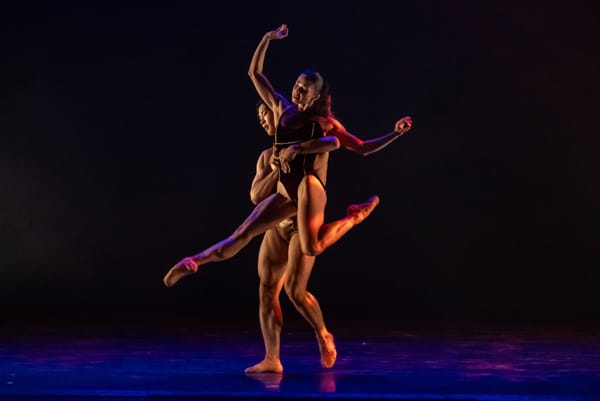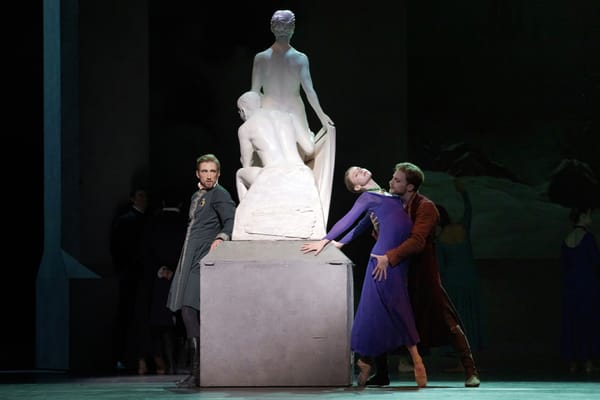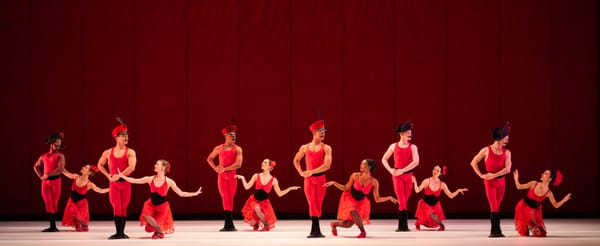Daisies Don't Lie
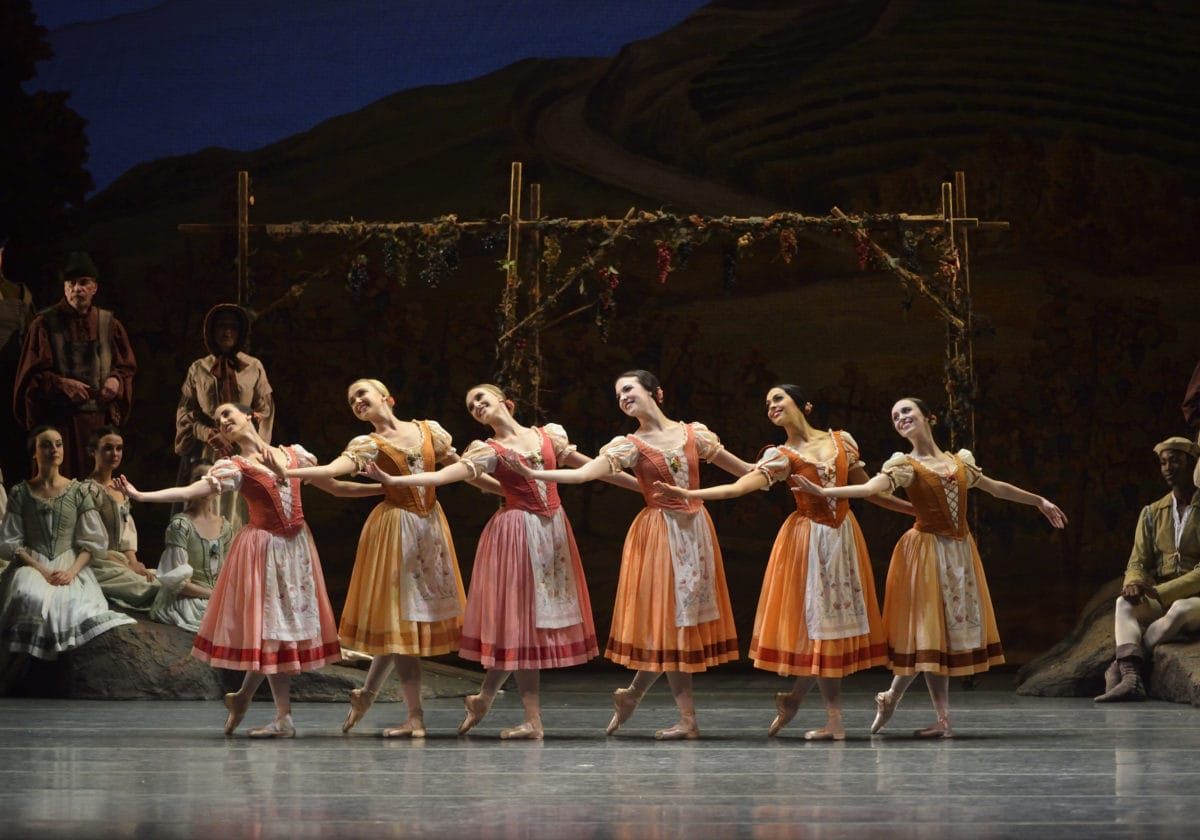
"Giselle"
American Ballet Theatre
Metropolitan Opera House
Lincoln Center
New York, New York
July 4, 2023, matinee
ABT celebrated the 4th of July with their solid version of the Russo/French "Giselle", a ballet with few fireworks though with plenty of drama. The two American leads, Devon Teuscher (in her New York debut) and Aran Bell, gave rich, detailed, and committed performances. Teuscher, a tall, regal dancer, is not a typical Giselle (she is a stunning Myrta, a combination of fire and ice), but she used her natural authority to create a memorable first act Giselle--it was no surprise that she would be chosen as the queen of the harvest. She was buoyant and happy in the opening scenes, without a hint of a giggle, playful but never coy. Her joy seemed to illuminate the stage with a gentle glow and her dancing seemed to flow from her happiness. The hops on point were confident and secure, but also dramatically coherent, as she kept her eyes on Albrecht, floating with joy.
The confident public declaration made her mad scene incredibly powerful, as it was clear her world had shattered. Teuscher just collapsed, curled up in pain, then slowly raised her head, her eyes completely dead, as her hands clawed at the invisible daily, shaking her head as if saying "he loves me not" over and over until a final burst of frantic energy and a last embrace.
Aran Bell, promoted to principal in 2020 when he was only 21, was, understandably, a youthful Albrecht, proud, imperious, but genuinely loving; his attitude towards Giselle was especially delicate and gentle, though he was self-centered enough to ignore Wildred's (an urgently sympathetic Duncan Lyle) pleading until it was too late. They looked very good together, their lines harmonizing. The opening jumps around the stage looked almost like they were skipping with joy, as they opted for grace rather than effort and mirrored each other's lines. Bell got plenty of jumps in Act II, expansive and beautifully shaped. He did the entrechats, which seemed to last at least five minutes, with his arms getting wilder and wilder until he collapsed, a fine example of virtuosity in the service of drama.
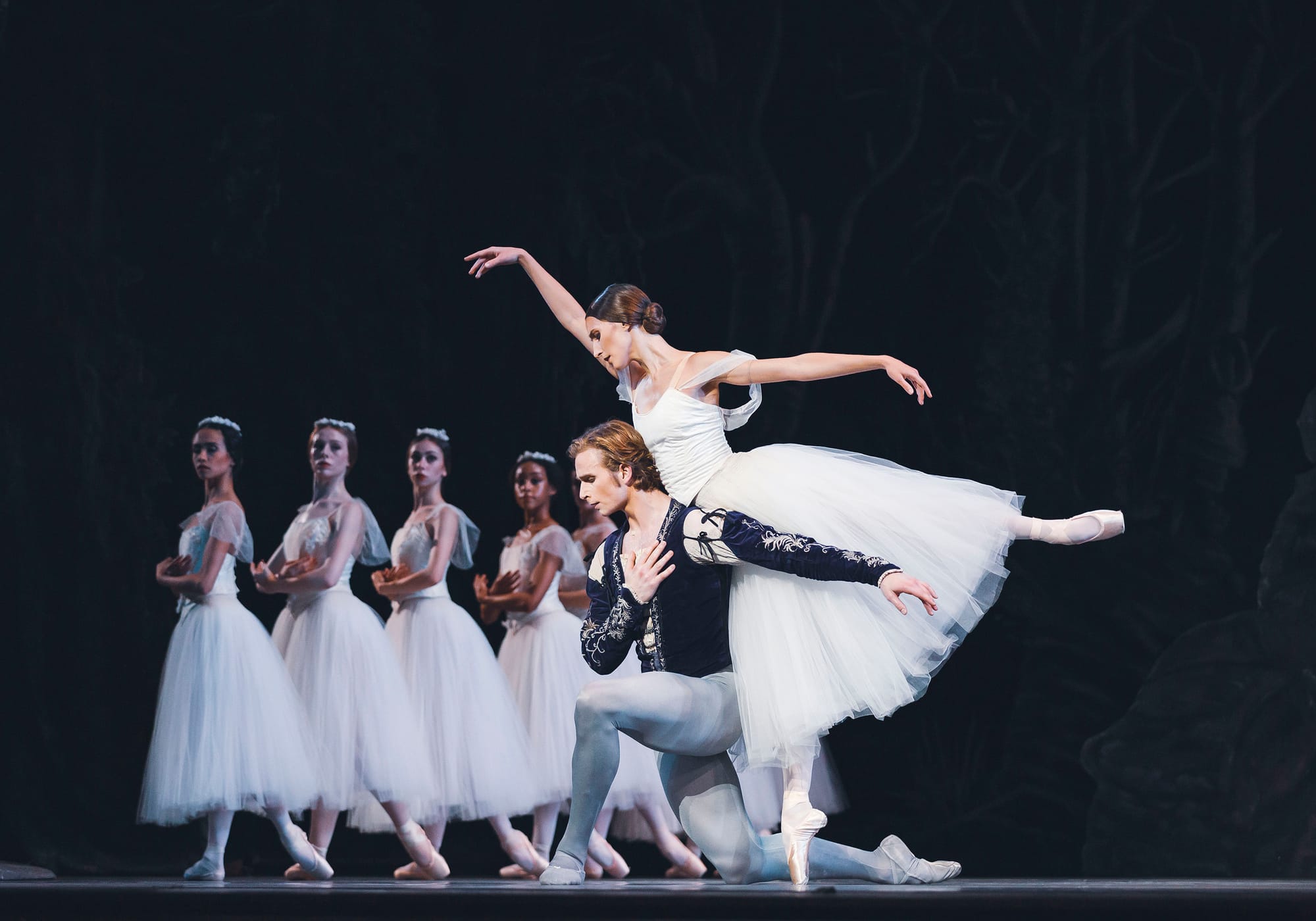
Bell is an excellent partner, and the floating horizontal lifts were beautifully done; it did seem as if her spirit and not her body was hovering above him. Teuscher was not as gossamer as some Act II Giselles, but she had a rich, lyrical flow to her dancing that was profoundly moving. Their opening adagio seemed like one long sigh. Her face, when the sun finally rose, glowed with relief and determination to hold on to her human form long enough to drop the final lily, telling him she forgave him. Bell, shattered, knelt on her grave, clasping the lily, then walked backwards, straining to see her one last time. ABT's "Giselle" avoids the exaggerated Romantic mannerisms and posing that some productions show, where plastique can turn into plastic as Giselle tiptoes from one lithograph to another. ABT seems to have encouraged Teuscher and Bell to develop their own approach, and they created a radiantly believable interpretation.
One of the (minor) drawbacks of the production, though, is the mid-century modern peasant pas de deux, which, no matter how well danced, has substituted too many awkward steps and ungainly lifts for the light and luscious petite batterie of the traditional version. Sunmi Park and Jose Sebastian gave it as much flavor as they could; Park was especially elegant, pausing at the top of her movements ever so slightly so that her elegant line registered. Sebastian's landings were not always clear, but his buoyancy and joy were infectious.
Poor Hilarion has no joy, though Jarod Curley had plenty of buoyancy in his final dance. He was an unusually sympathetic Hilarion, pleading with Giselle rather than trying to force himself on her. His heartbroken reaction on seeing his flowers ignored on her doorstep seemed to carry on into Act II, where he offered that same bouquet to her grave, knowing she couldn't refuse it that time. It did seem odd, though, that the hunting party no longer leaves the horn behind for him to confirm that the seal matches the one on Albrecht's sword; he came out of the cottage having found both the horn and the sword, so how could he connect them with the Courland party? Of course, I may be overthinking this.
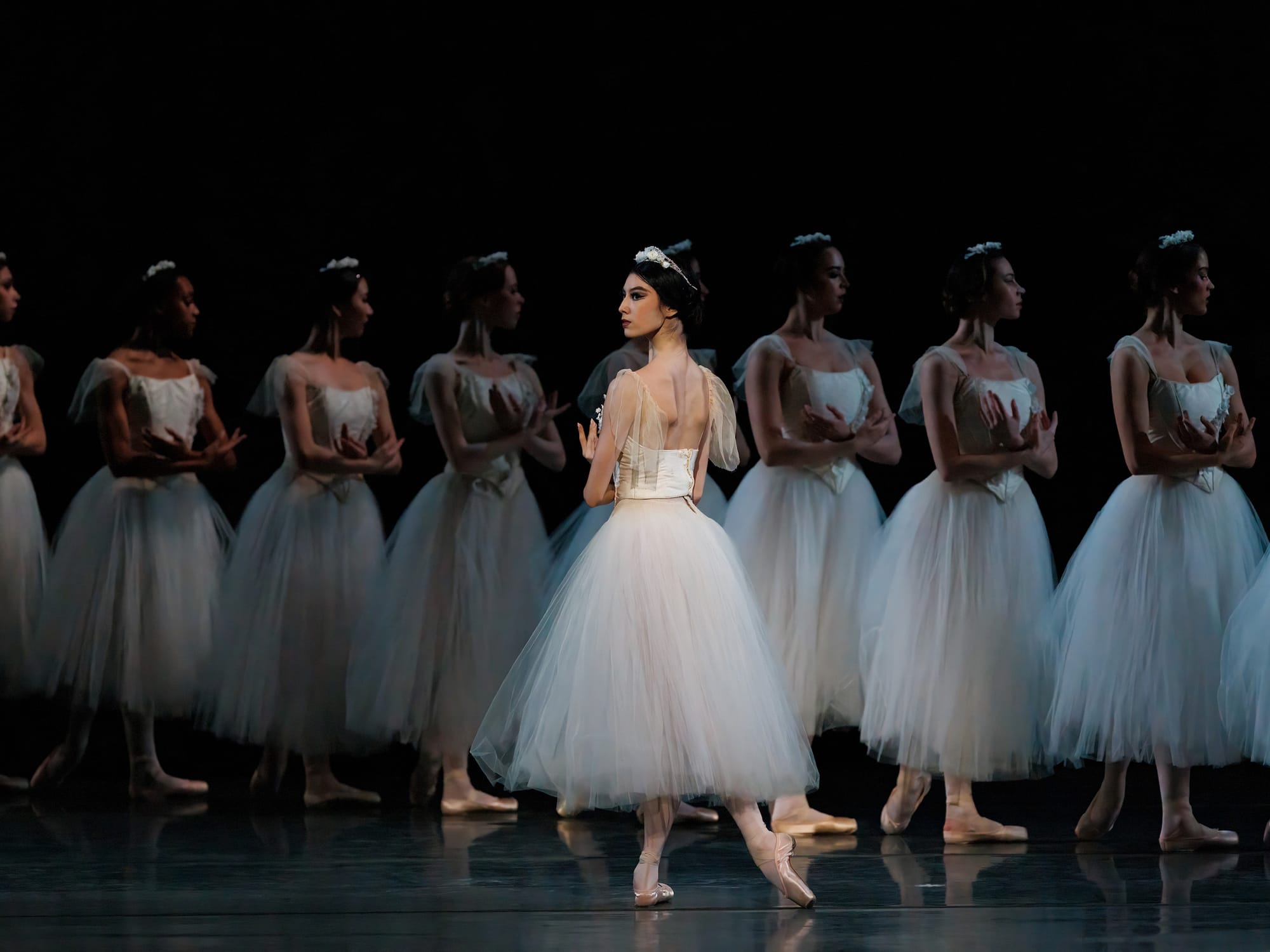
Chloe Misseldine, in only her second performance, was a regal Myrta, with smooth bourées and rich arabesque. For me, though, she lacked the venomous authority and commanding upper body Myrta needs; she was elegant but a little light weight. She seemed to have no reaction to Hilarion's death, no glee at finding Albrecht, no hint of a back story to explain the greed for revenge. The wilis that she led, including the stylish Remy Young and Ingrid Thomas as Moyna and Zulma, were extremely well-rehearsed, beautifully in sync and mysteriously quiet; they seemed to be dancing on moss. They, and the principals, certainly deserved their ovations.
© 2023 Mary Cargill
